Which of the following is true of anabolic reactions? Inducible and repressible enzymes usually function in catabolic pathways.
Which Of The Following Is True For Anabolic Pathways. They consume energy to build up polymers from monomers. 6) which of the following statements about anabolic pathways is true? Which of the following is are true for. Catabolic pathways use a wide variety of substrates to produce a small number of waste products.
 Ap Bio Test Bank #8 Flashcards | Quizlet From quizlet.com
Ap Bio Test Bank #8 Flashcards | Quizlet From quizlet.com
Related Post Ap Bio Test Bank #8 Flashcards | Quizlet :
Which of the following is true? D.gluconeogenesis is the anabolic pathway by which organisms make glucose from pyruvate. Which of the following is (are) true for anabolic pathways? They do not depend on enzymes.
A) they are usually spontaneous chemical reactions.
Many of the reactions in a metabolic pathway are thermodynamically reversible. Which of the following is true? Which of the following statements concerning catabolic pathways is true? Considering the role of atp formation and hydrolysis in energy coupling of anabolic and catabolic pathways, which of the following statements is. Which of the following is (are) true for anabolic pathways? The conversion of glucose to lactic acid is a catabolic process.

D) they release energy as they degrade polymers to monomers. (anabolic pathways, which build larger molecules from smaller molecules, require energy. Which of the following is true of anabolic reactions?
 Source: researchgate.net
Source: researchgate.net
Many of the reactions in a metabolic pathway are thermodynamically reversible. Which of the following is (are) true for anabolic pathways? C) they release energy by degrading polymers to monomers.
![Solved] Which Of The Following Is True Of Metabolism? | Course Hero](https://www.coursehero.com/qa/attachment/17736790/ “Solved] Which Of The Following Is True Of Metabolism? | Course Hero”) Source: coursehero.com
- under most conditions, the supply of energy by catabolic pathways is regulated by the demand for energy by anabolic pathways. Asked jun 30, 2017 in chemistry by ariana. They do not depend on enzymes.
 Source: commons.wikimedia.org
Source: commons.wikimedia.org
C) they are spontaneous and do. 6) which of the following statements about anabolic pathways is true? D.gluconeogenesis is the anabolic pathway by which organisms make glucose from pyruvate.
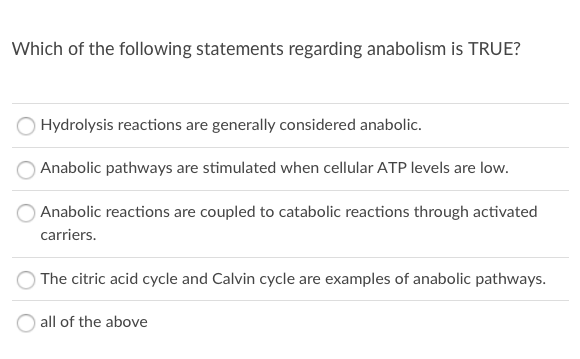 Source: bartleby.com
Source: bartleby.com
B) they consume energy to build up polymers from monomers. A) they do not depend on enzymes. Catabolic pathways use a wide variety of substrates to produce a small number of waste products.
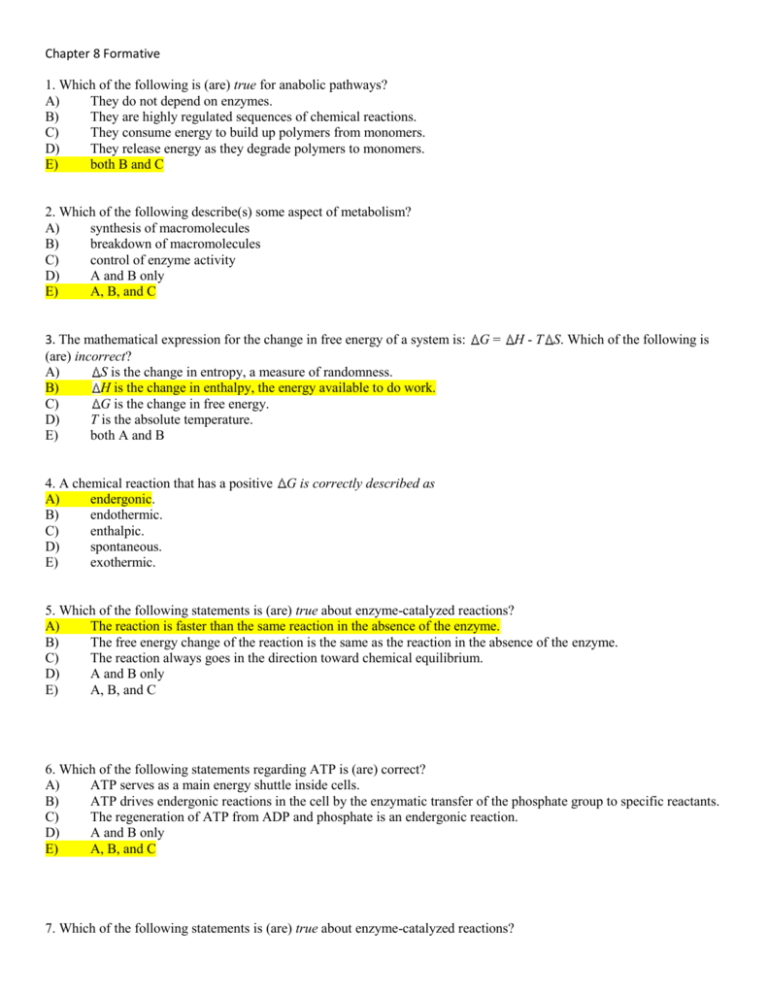 Source: studylib.net
Source: studylib.net
B.as a rule, the anabolic pathway by which an organism makes a substance is the exact reverse of the catabolic pathway. B) they are usually spontaneous chemical reactions. Which of the following is true for anabolic pathways?

D.gluconeogenesis is the anabolic pathway by which organisms make glucose from pyruvate. Catabolic and anabolic pathways are often coupled in a cell because; Which of the following is (are) true for anabolic pathways?
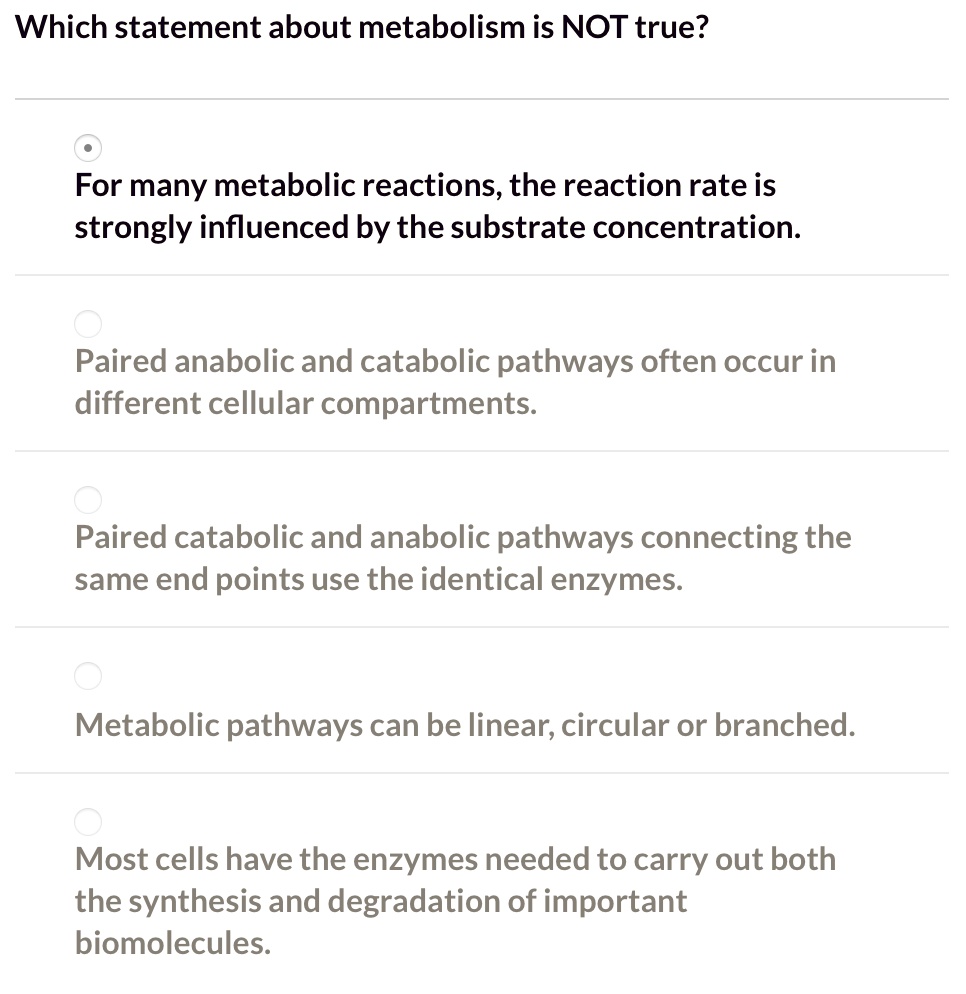 Source: numerade.com
Source: numerade.com
D) they release energy as they degrade polymers to monomers. B) they consume energy to build up polymers from monomers. They are usually spontaneous chemical reactions.
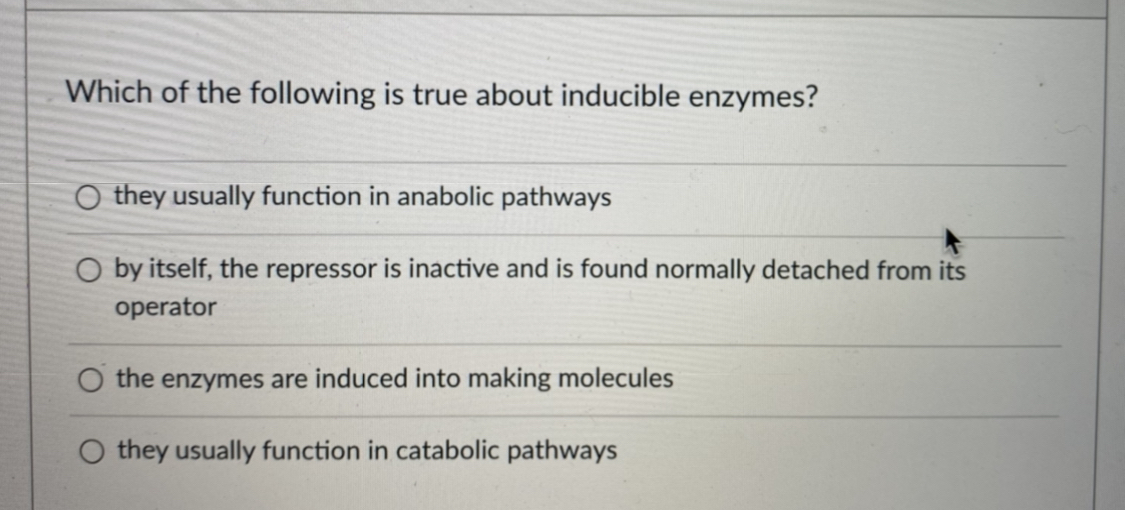 Source: bartleby.com
Source: bartleby.com
They consume energy to build up polymers from monomers. Considering the role of atp formation and hydrolysis in energy coupling of anabolic and catabolic pathways, which of the following statements is most likely to be true? A) they do not depend on enzymes.
 Source: researchgate.net
Source: researchgate.net
They are usually spontaneous chemical reactions. Catabolic pathways are generally reductive while anabolic pathways are generally oxidative b. They release energy as they degrade polymers to monomers.
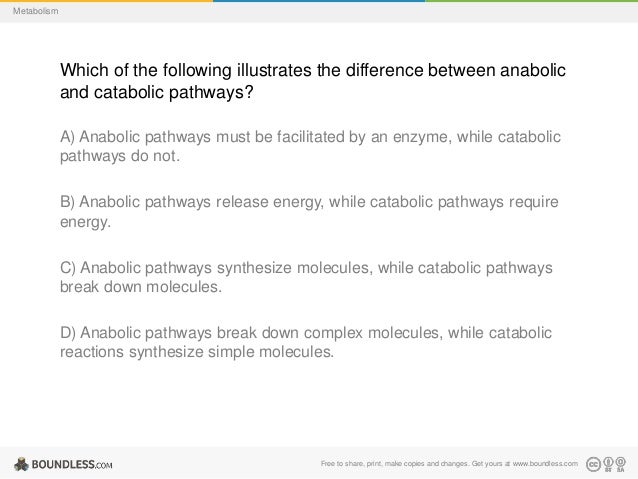 Source: slideshare.net
Source: slideshare.net
D) they release energy as they degrade polymers to monomers. They release energy as they degrade polymers to monomers. Asked jun 30, 2017 in chemistry by ariana.
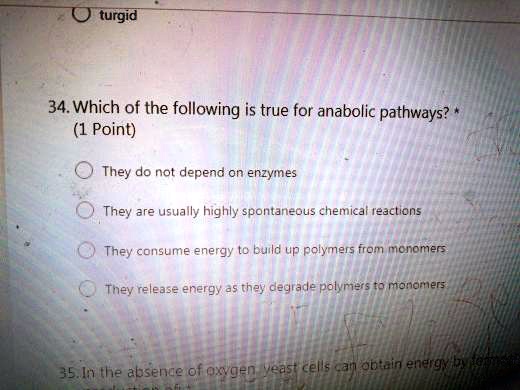 Source: numerade.com
Source: numerade.com
Anabolic pathways release energy using enzymes and energy to build up polymers from monomers. B) they consume energy to build up polymers from monomers. C) they are spontaneous and do.
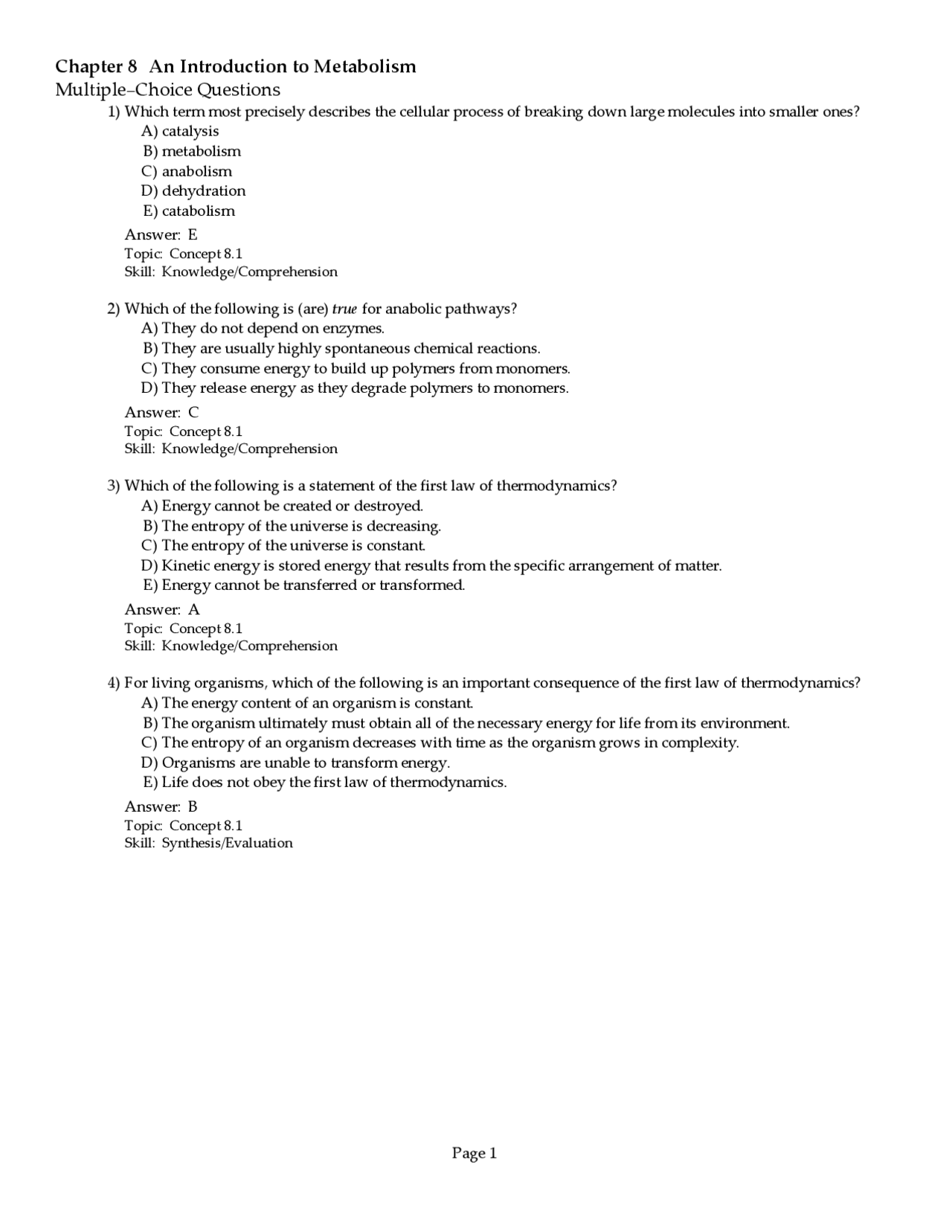 Source: docsity.com
Source: docsity.com
Which of the following statements about anabolic pathways is true? A) they do not depend on enzymes. D) they release energy as they degrade polymers to monomers.
 Source: chegg.com
Source: chegg.com
C) they consume energy to build up polymers from monomers. Catabolic pathways are generally reductive while anabolic pathways are generally oxidative b. Anabolic reactions break down complex organic compounds into simpler ones.
 Source: chegg.com
Source: chegg.com
They release energy by degrading polymers to monomers. Complete the following sentence concerning the two. A) they do not depend on enzymes.
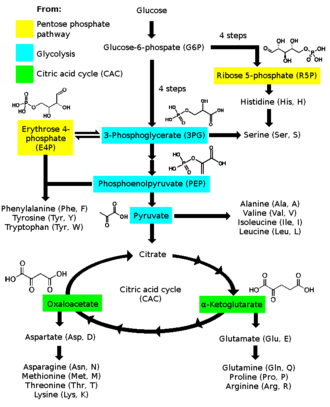 Source: en.wikipedia.org
Source: en.wikipedia.org
They consume energy to build up polymers from monomers. This energy is provided by catabolic pathways, which break down complex molecules into simpler ones, releasing energy.) Which of the following statements about anabolic pathways is true?
 Source: chegg.com
Source: chegg.com
A) they do not depend on enzymes. They consume energy to build polymers from monomers. Which of the following statements about anabolic pathways is true?
 Source: quizlet.com
Source: quizlet.com
Under most conditions, the supply of energy by catabolic pathways is regulated by the demand for energy by anabolic pathways. Which of the following is (are) true for anabolic pathways? The conversion of glucose to lactic acid is a catabolic process.
 Source: courses.lumenlearning.com
Source: courses.lumenlearning.com
Which of the following statements about anabolic pathways is true? (anabolic pathways, which build larger molecules from smaller molecules, require energy. Catabolic pathways are generally reductive while anabolic pathways are generally oxidative b.
 Source: chegg.com
Source: chegg.com
Catabolic pathways use a wide variety of substrates to produce a small number of waste products. They are spontaneous and do not need enzyme catalysis. Which of the following is are true for.
Also Read :





